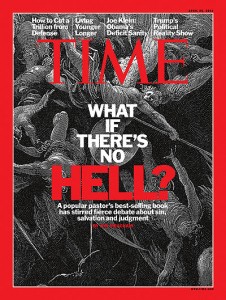http://m.theglobeandmail.com/news/arts/russell-smith/theres-no-tense-like-the-present/article1935211/?service=mobile
A doctor friend tells a story that illustrates why it’s important to understand verb tenses.
A patient whose first language is not English is asked about quitting smoking. He says, “I try. I don’t smoke for six weeks.”
The simple present is the only verb tense the man knows, so it’s impossible to tell if he is saying that he will try, and is aiming for six weeks of abstention; or that he has been trying, and hasn’t had a ciggie for six weeks; or that he tried, and abstained for six weeks (but has relapsed).
Rephrased questions from the doctor couldn’t provoke any more precise answer, so the doctor still doesn’t know what shape the guy is in.
This is a familiar limitation for new speakers of any language, but it’s particularly tricky in English, which has a wide variety of verb structures with subtle distinctions that don’t exist in many other languages.
It is possible that the man wanted to say “I haven’t smoked for six weeks” – that’s called the present perfect – but even native speakers of English have trouble with that. It’s an odd structure, one that does not translate exactly into French, for example.
Because of the strangeness and subtlety of this tense and aspect (definitions coming in a moment), it is frequently avoided, as in “I didn’t smoke yet” instead of “I haven’t smoked yet.” Or just misused: I have heard Canadian radio announcers say such head-scratchers as “There has been an acquittal last night” or “A train has derailed on Friday.”
I have made the plea before for the continued oiling and maintenance of this gleaming, intricate mechanism of the language, but nothing seems to slow its rust. So here are a few more arguments for respecting its complexity (if only for the sake of your medical charts).
First, tense and aspect. All verbs in sentences can be described as having a tense (present, past, future), an aspect (how exactly in the present, past, future) and a mood (subjunctive, indicative, imperative etc). The moods we will leave for a later column. Aspect means that you can use a variety of present forms with gently differing meanings. “I smoke,” for example (simple present), has different implications from “I am smoking” (progressive present) or “I do smoke” (intensive present).
All those are present tenses. And so is “I have smoked.” It’s commonly described as being a past tense, but it’s not helpful to think of it that way. Rather, it is a perfect aspect of the present tense.
I know, the present perfect looks a lot like the French passé composé (“j’ai fumé”) or the Italian passato prossimo (“io ho fumato”), but it does not mean the same thing. In French and Italian, those are past tenses. So you may say “j’ai fumé hier” and it makes sense – I smoked yesterday. “I have smoked yesterday,” however, does not sound like natural English. This aspect is not normally used in a sentence referring to a specific moment in the past.
If you say “I have smoked,” it refers to your present state – you are now in the state of having smoked. This is why we often use this structure with the words “already,” “since,” “recently” or “yet.” The sentence may refer to a past event, but it is being described because of its consequences for the present. If you mention a specific moment in the past you use the simple past, “Yesterday, I smoked.”
Here’s a simple demonstration: If you say “I ate this morning,” it means it is now afternoon. If you say “I have eaten this morning,” it means it is still morning.
A final proof of its presentness: Try to imagine using this aspect with a dead person as the subject. “Michael Jackson has eaten.” Doesn’t make sense, right? (“Michael Jackson last ate in 2003,” however, is a perfectly coherent sentence.)
So, if the patient above spoke elegant English and was trying to say he was currently off cigarettes and had been for six weeks, he would have said “I have not smoked for six weeks” – and isn’t that, if you think about it, just amazingly economical for such a complicated and nuanced thought?
And wouldn’t it be better for your health if you could communicate your patterns so precisely – maybe even revelling in such high-level acrobatics as “I have been smoking since this morning?”
Okay, maybe not, but it’s at least delightful just to have the ability.
Published on Wednesday, Mar. 09, 2011 4:30PM EST


 “
“



